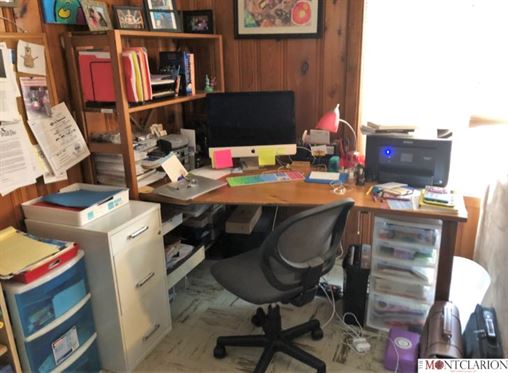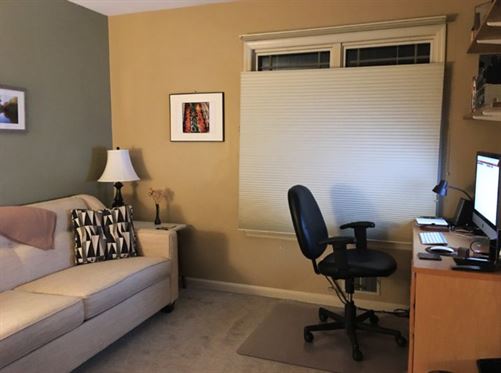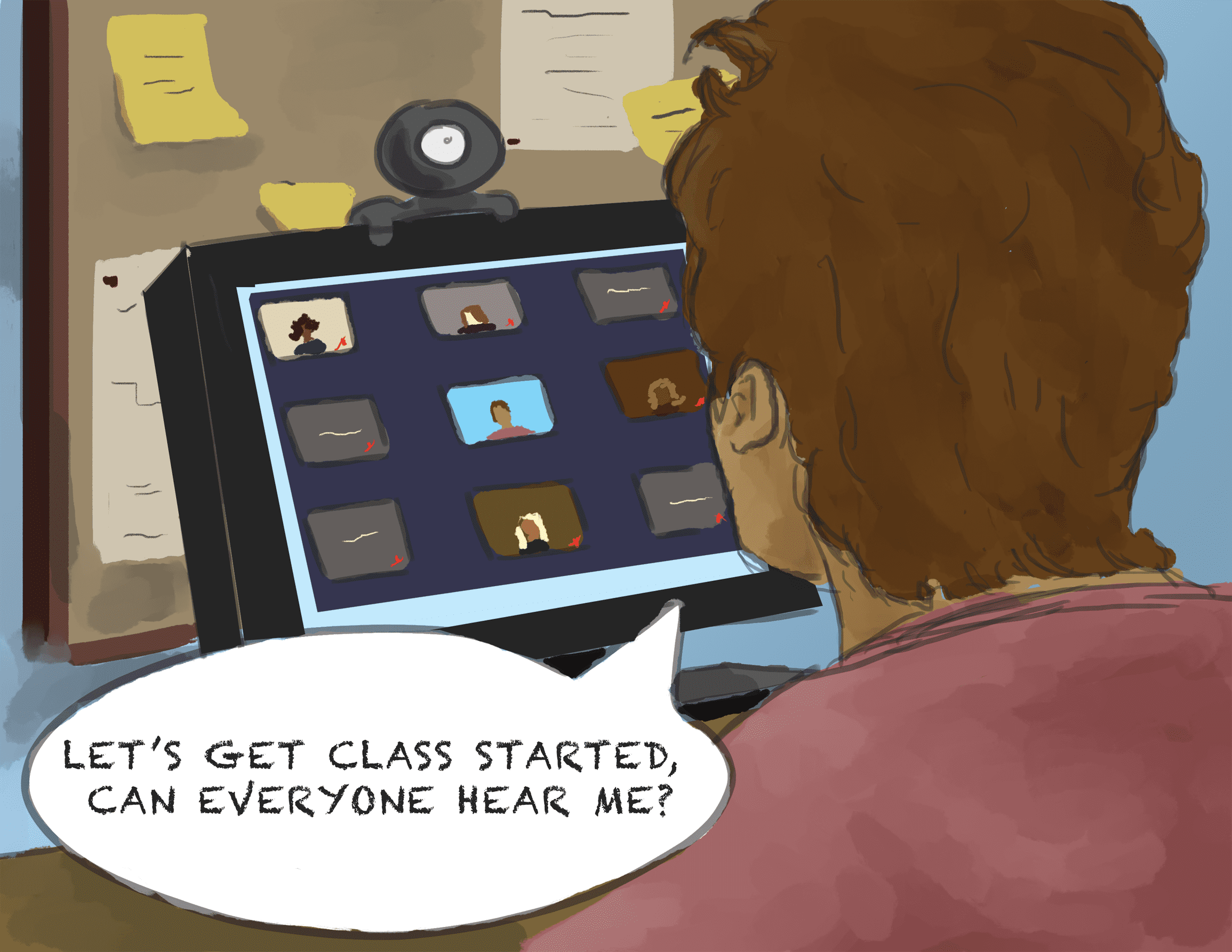As week three of online classes is in full swing, students aren’t the only ones with mixed emotions about online instruction. Video conferencing and online assignments are having an impact on professors as well, turning teaching into an even bigger challenge for them.
For film professor Art Simon, online educating isn’t allowing him to do much.
“It permits us to do the minimum,” Simon said. “I am including the use of Zoom and Canvas conferencing, but I would never adopt these practices during more normal times.”
Simon believes this is the right thing to do, but doesn’t believe it can replace in-class instruction. For new professors at the university, such as special topics professor Jack Rico, the transition adds additional pressure.

Film professor Art Simon is using Zoom and Canvas conferencing to conduct his classes but does not prefer it.
Photo courtesy of Montclair State University
“Switching from face-to-face teaching to online teaching in the middle of the course has been tough since I’ve never done it,” Rico said. “[Montclair State University] has been great in reaching out to all teachers and providing tutorials, phone, email and online support.”

History professor Esperanza Brizuela-Garcia had to scale down her course work after making the switch to online classes.
Photo courtesy of Montclair State University
History professor Esperanza Brizuela-Garcia likes to help her students grow, learn and succeed by challenging them, but she’s struggling to keep up with the challenges online learning brings to her own classroom.
“Ordinarily, designing and deploying rigorous online courses takes a lot of time,” Brizuela-Garcia said.

History professor Esperanza Brizuela-Garcia’s home workspace.
Photo courtesy of Esperanza Brizuela-Garcia
The change is even causing her to make assignments easier and limits her goals.
“Given our current circumstances, I had to scale down some learning objectives while trying to keep the courses viable and useful for my students,” Brizuela-Garcia said. “If anything, this crisis has reinforced my belief that even though online learning has its place in a modern education system, it limits the goals I can pursue as an instructor.”
For others such as psychology and child advocacy professor Mark Perez, online teaching is just another feat to overcome in this unprecedented time.
“Today’s online teaching is a challenge that needs to be overcome, like this present world tragedy,” Perez said. “Our students and community are worth it.”

Psychology and child advocacy professor Mark Perez believes his students will come out of the pandemic as strong individuals.
Photo courtesy of Mark Perez
Perez believes in not failing his students during this time and thinks they will be stronger once it is all over.
“Our students are the very best and have shown great resolve, may I not fail them,” Perez said. “May they come out of this devastating pandemic better and made stronger.”
Law and political science professor Marc Schwartz believes the online courses are giving his students a sense of normalcy despite not being at the university.
“This spring has been my first experience with online teaching so my learning curve has been pretty steep,” Schwartz said. “But the university has provided the resources to get us up to speed. I’m finding that teaching live, at the usual time, even if not at the usual place, is giving me and my students some much needed continuity during an unsettling time.”
One professor who hasn’t run into trouble is journalism professor Scott Hooker, who doesn’t mind teaching online and has adjusted accordingly.

Journalism professor Scott Hooker’s teaching spot.
Photo courtesy of Scott Hooker
“From my perspective, the switch to online instruction has been mostly a smooth one,” Hooker said. “[Montclair State] took decisive action early, allowing me enough time and training to convert my Journalism 280 course.”
As smooth as the transition has been for Hooker, he still misses being in the School of Communication and Media News Lab, where his classes are taught each week.
“I certainly miss connecting with students in person, but we’re making the best of a bad situation,” Hooker said. “I’m enjoying this chance to become proficient using higher tech teaching tools while trying to keep my methods as low-tech as possible to ease the burden on my students during this stressful time.”



